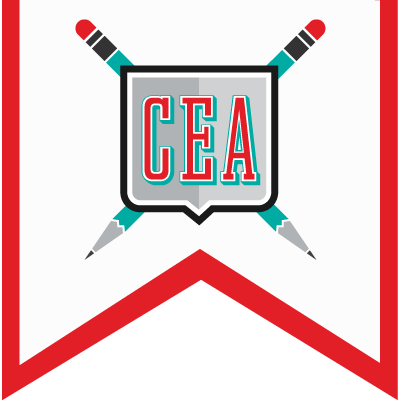Guide to the 2025-26 Coalition Application Essay Prompts
What do the 2025-26 Coalition Application essay prompts really mean, and how should you approach them? CEA's Chief Advisor, Stacey Brook, is here to break it all down.

Stacey Brook, Founder and Chief Advisor
Ten years ago, applicants around the world became the first to experiment with a brand new college application platform. Intended to be a full-service competitor to the Common App, the Coalition Application provided students with a fresh, new interface and, of course, a new set of essay prompts to grapple with. It still remains to be seen whether or not the Coalition App—whose participating schools include the University of Chicago, University of Maryland, and most of the Ivy League—will truly challenge the Common App’s long-term dominance in the admissions space, but what we do know is that the prompts the Coalition presented to previous applicants were quite similar in nature to those from the Common App each year.
We here at CEA believe that a worthy subject for a personal essay can be backed into just about any prompt for the Coalition App (just as with the Common App). Still, we thought it would be valuable to break down each one, highlighting what these questions are really asking and how to use them as inspiration for an effective and memorable college essay that really hits home with admissions. So take a peek at the advice below. It’s never too early to begin mining for those stories that will show admissions what you’re made of.

Prompt #1: Tell a story from your life, describing an experience that either demonstrates your character or helped to shape it.
As a launch point for an application essay, Prompt #1 leaves your options wide open. It should be a good fit for any tale you have to tell that “demonstrates your character,” which should be a base requirement of any personal statement you submit, regardless of the prompt you’re responding to. How do you define yourself? What characteristics form the foundation of your personality? Are you generous and thoughtful? Are you gutsy? Resilient? Funny? Think about some of the most memorable moments in your life—the stories that come up over and over again, the moments that make you feel most proud. Maybe your talkative approach to a science fair, and the warm reaction it elicited from the judges and even your competitors, made you realize the value of being unabashedly gregarious. Perhaps a particularly boring summer in your childhood inspired you to create a role-playing game that involved all the kids in the neighborhood. What do these stories say about you and the lens through which you see the world? One last thing to note in choosing this prompt is that, while it is broad in its overall inquiry, it does specifically ask you to describe an experience, so if the idea you have in your head is character-related but not tied to a specific event or occurrence, you might want to save it for a different prompt. (Don’t worry—more great options are coming.)

Prompt #2: What interests or excites you? How does it shape who you are now or who you might become in the future?
What floats your boat? You could argue that college is largely about the pursuit of knowledge, so you can imagine why it would be quite appealing for an admissions officer to better understand what makes you tick. This prompt is an invitation to offer admissions a peek into your brain: what you find compelling, how your interests fit into your identity, and how your curiosity might impact your future. The answer to this prompt should also reveal something to admissions about the breadth or depth of your interests. For example, if you’re interested in studying astrophysics, you might choose to discuss a concept that shows how far your exploration of the sciences truly reaches. How consumed are you by this passion you are choosing to pursue academically? What lengths have you gone to in order to acquire new information about or experiences related to that topic? And how does this passion spill into your daily life or long-term goals? What about the process of learning is rewarding to you? Whether you are devouring the classics on your Kindle or nerding out over the perfect cheese for calzone-making, your attachment to a subject may inspire admissions to want to learn more about it…and you.

Prompt #3: Describe a time when you had a positive impact on others. What were the challenges? What were the rewards?
We all love making a positive difference in the lives of others, no matter how big or small, and admissions wants to hear about a time when you went out of your way to make an impact. Your thoughts may immediately head in the direction of community service and volunteer work, and while a story about those experiences could make for a wonderful essay, it can be hard to stand out with a straightforward description of a service effort. Instead, we recommend isolating a specific element/moment of your service to focus on or reflecting on a time when you felt proud, accomplished, or humbled by extending yourself. Maybe you took the newest hire under your wing at the diner where you work. How did you balance your own responsibilities with supervising the apprentice? Did you struggle to articulate your method at first? How did you set them up for success and how did the experience make you feel? Maybe you auditioned for the school musical, despite having two left feet, and inspired your peers to take risks and get outside their comfort zones. How did they express their gratitude? How did it feel to be on stage in front of your peers? Why did that feel important to you? Remember that authenticity is key, and a strong essay in response to this prompt will demonstrate humility, generosity, and leadership skills.

Prompt #4: Has there been a time when an idea or belief of yours was questioned? How did you respond? What did you learn?
While the Common Application’s prompt #3 asks applicants to address a time when they questioned a belief or idea, your readers are interested in learning about a time when you were the one to have your beliefs questioned. This prompt sets the stage for applicants to thoughtfully reflect on their worldview and demonstrate an openness to the ideas and perspectives of others. If you choose to respond to this prompt, you’ll want to be sure that you’re not presenting something so polarizing you’re likely to alienate your reader. That being said, a strong response to this prompt could make for a distinct, memorable essay that is revelatory and deeply personal. For example, maybe you were raised with traditional beliefs in your faith community—how did attending a summer program in a big city expose you to new perspectives and worldviews? If you can clearly articulate your ability to reflect, hear different points of view, and grow and develop as you live and learn, you’ll likely stand out from the pack.

Prompt #5: What success have you achieved or obstacle have you faced? What advice would you give a sibling or friend going through a similar experience?
The Coalition Application is really giving you a long leash in regards to what you’d like to address here. If you decide to go the accomplishment route, be careful to avoid telling a self-aggrandizing story. Instead, you might want to focus on the hard work it took to earn the award or achievement or the tenacity and perseverance it required of you to see it through. The most important things to keep in mind when searching for these moments are the elements of growth, understanding, and transformation. The accomplishment you discuss should be something that helped you understand the world around you through a different, more mature lens.
If you opt to write about an obstacle you’ve faced, your essay should be predominantly filled with your response, outlook, and demeanor when presented with one of life’s many hurdles, rather than a detailed account of the hurdle itself. Applicants should aim to showcase qualities like resilience, determination, and humility. The obstacles you choose to explore can vary widely in nature; they can be as serious as being tormented by bullies or as ingrained as growing up in a single-parent household. While the possibilities are endless, students should be careful not to choose challenges that may seem trite (the inability to achieve an A on an exam and/or secure tickets to that Billie Eilish concert) or that illustrate a lapse in good judgment (that time a TikTok trend resulted in a trip to the ER).
Finally, regardless of whether you write about an obstacle or achievement, admissions wants to know what advice you’d give to a sibling or friend going through a similar experience. In other words, they want to see you reflect and reveal what you learned from dealing with struggles or triumphs. Your reflection on what you have learned and how you have grown will be a source of great insight for admissions, and you’ll want to make sure your essay highlights the intangible qualities that don’t show up anywhere else on an application.

Prompt #6: Submit an essay on a topic of your choice.
For many students, this catch-all prompt is a gift. Obviously, any essay you write will meet the requirement of this prompt, so if you have already begun brainstorming with the Common App topics in mind, fear not; this Coalition prompt has you covered. That said, if you are approaching the personal statement for the first time, trying to find a place to begin, the topic of your choice may not be the place you want to start. Having a wide-open runway for topic selection can be debilitating for some, so if your creativity flourishes under stricter parameters, by all means, use one of the other awesome prompts to guide your inspiration. No matter what, the thing that matters most is not the prompt you respond to, but instead the story you are trying to tell and what it will communicate to admissions.
Whichever Coalition prompt you decide to respond to, and whatever you discuss, your essay should reveal qualities and experiences that cannot be gleaned from your test scores, activity résumé, or any other element of your existing application. This is where an admissions officer gets to know what it would be like to have a conversation with you. It is, at least as far as we know, still one of the only opportunities the Coalition offers you to speak to admissions in your own voice. Take that opportunity and make the most of it.
Contact us for information on rates and more!
 Contact us for
Contact us forrates and more!




